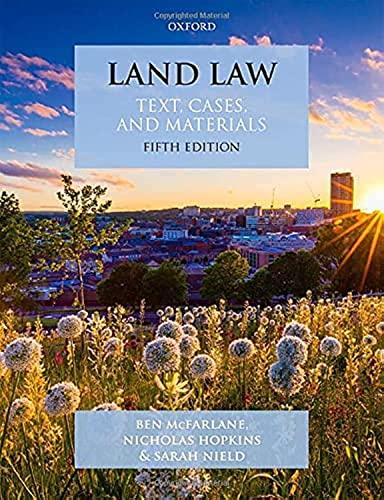Question
The scope limitation of the fourth amendment is the right of the people to be secure in ther person, house, paper and effect against unreasonable
The scope limitation of the fourth amendment is the right of the people to be secure in ther person, house, paper and effect against unreasonable searches and seizures by law enforcement police officers. In England and the colonies, the important arguements over searches and seizures centered around the character of the warrants. They were lawful warrantless searches, primarily searches leading to arrest. Because of this, they gave notice to no arguements within the court system. However, a question came about whether the 4th amendment's 2 clauses should be read together to implay that only searches and seizures which are "reasonable" is that what meets the requirements of the 2nd clause, which is agreeable to the warrants issued under the ordered protection, or whether the 2 clauses should be read independantly, so that the searches under a warrant must abide by the 2nd clause. Although, there are "reasonable" searches that do need to meet the requirements of the 2nd clause. A US Supreme Court case that supported this specific limited requirement would be the case of Harris vs United States. In this case, It agreed by the court that it was "reasonable" the warrantless search of a 4 room apartment confirming to the detaing and/or arrest of a man found at the scene.
Is this statement reasonable? Explain why.
Step by Step Solution
There are 3 Steps involved in it
Step: 1

Get Instant Access to Expert-Tailored Solutions
See step-by-step solutions with expert insights and AI powered tools for academic success
Step: 2

Step: 3

Ace Your Homework with AI
Get the answers you need in no time with our AI-driven, step-by-step assistance
Get Started


